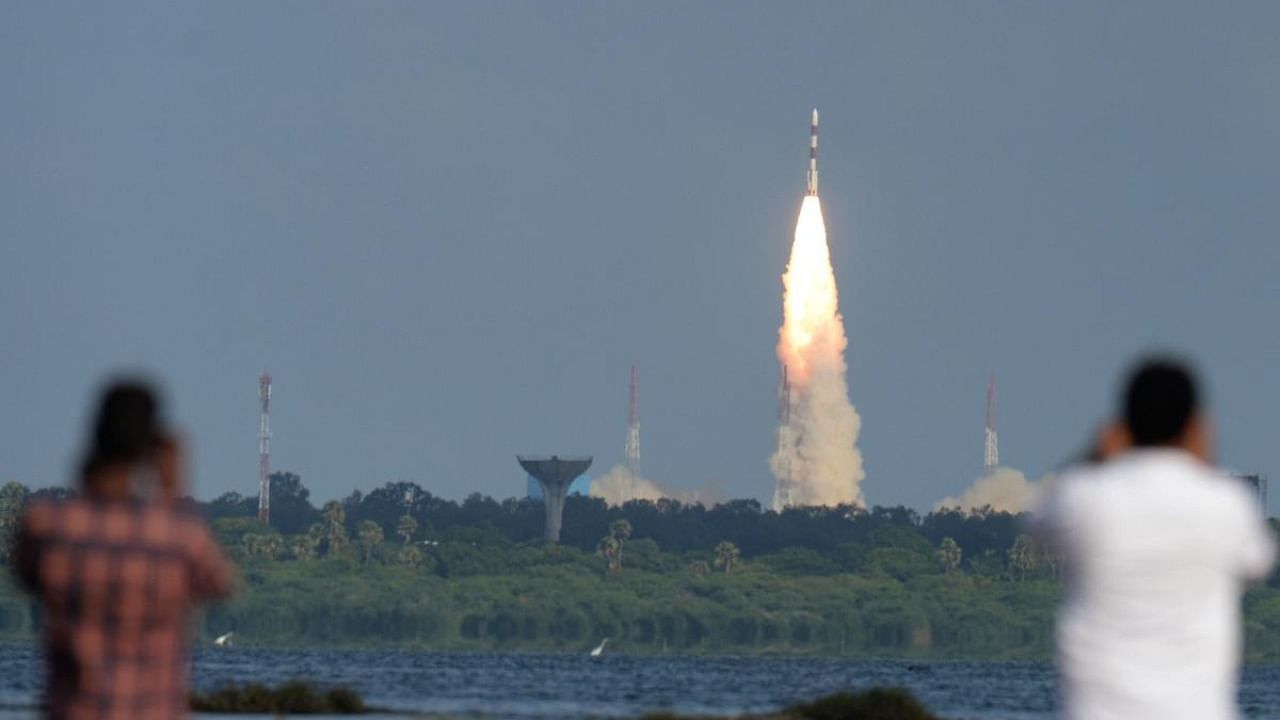
India's satellite-based navigation and augmentation services sector appears headed for a higher growth trajectory with the proposed ignition of a policy push towards effective development, operation and maintenance of such systems.
The Department of Space (DoS) plans to devise a "comprehensive and substantive" national policy for satellite-based navigation -- the Indian Satellite Navigation Policy - 2021 (SATNAV Policy - 2021). Its draft has now been hosted on the website of the Indian Space Research Organisation (ISRO) for public consultation after which it would be placed before the Union Cabinet for final approval.
It seeks to "Achieve self-reliance in satellite-based navigation and augmentation services with emphasis on assuring availability & quality, enhancing usage, working towards progressive evolution of the services and promoting research & development". In the last few decades, there has been a phenomenal growth in the number of applications that rely on Position, Velocity and Time (PVT) services provided by space based navigation systems, it was noted.
With the advent of information and mobile phone technology, crores of users across India rely heavily on PVT based applications in virtually every walk of life. Global Navigation Satellite Systems (GNSS) are space based navigation systems that provide navigation signals across the globe. Currently, there are four GNSS -- GPS from the USA; GLONASS from Russia; Galileo from European Union & BeiDou from China -- offering PVT solution globally.
In addition, there are two regional navigation satellite systems -- NavIC from India and QZSS from Japan offering navigation signals for the defined coverage area. The Navigation signals are offered free-to-air for a variety of applications ranging from air, space, maritime and land applications covering tracking, telematics, location based services (using cell phone and mobile devices), automotive, survey, mapping & GIS and timing.
GNSS also offer secured navigation signals exclusively for strategic applications of their respective countries as the free-to-air signals are susceptible to adversaries. There is a need for such secured services exclusively for the Indian strategic community also, according to the draft. The Government of India has, therefore, established a resilient and independent system - Navigation with Indian Constellation (NavIC) which is totally under its control. satellite-based Augmentation Systems (SBAS) augment navigation satellite constellations by providing integrity and correction information via geostationary satellites.
WAAS of USA, EGNOS of European Union, SDCM of Russia, SNAS/BDSSBAS of China offer these services in their defined coverage area. Government of India has also established a similar SBAS system -- GPS Aided Geo Augmented Navigation-(GAGAN) for the Indian airspace. "Space based navigation /augmentation system is essentially a public good which has to be accessible to all users", the DoS said. "Such a national infrastructure can only be provided by the Government".
Further, to strengthen Government's 'Aatmanirbhar Bharat' initiative, it is essential to ensure continuity of NavIC and GAGAN services, upgrade the system considering the exponential technological advancements and also continue having the capability to operate in conjunction with other GNSS/SBAS, the draft said. So, it is pertinent to devise a comprehensive and substantive national policy for satellite-based navigation.
The objective of the policy is to ensure guaranteed and continuous availability of free-to-air navigation signals for civilian uses and secured navigation signals for strategic uses in the defined coverage area. Another goal is to ensure guaranteed and continuous availability of SBAS for aviation safety in the defined coverage area. There is also a need to work towards progressive evolution of navigation signals and expansion of coverage for enhanced use.
Focus would also be on technology development for enhancing the navigation satellite systems, and working towards compatibility and interoperability of Indian satellite navigation and augmentation signals with other GNSS/SBAS signals.
Another aim is to promote Indian industry and academia to carry out research and development activities in the field of satellite navigation based applications with emphasis on societal benefits. There is also a need to work towards facilitating global usage of Indian satellite navigation and augmentation systems, the DoS said in the draft.